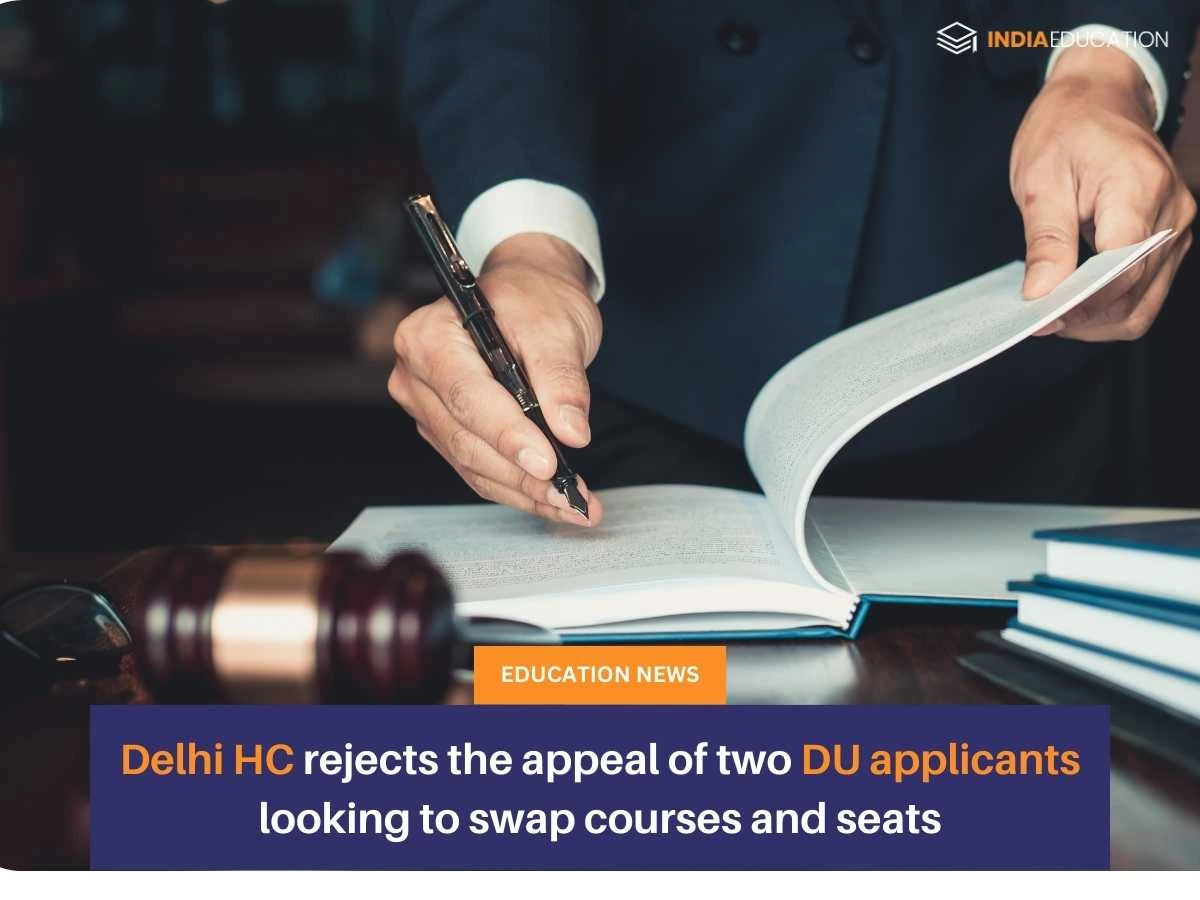
Delhi HC rejects the appeal of two DU applicants looking to swap courses and seats
The DU said, according to the pertinent strategy, it was not reasonable for the possibility to change the seat after she has gotten confirmation in the course and school of her “first inclination”.

The Delhi High Court wouldn’t allow two fruitful Delhi University applicants to commonly swap their picked course and seats however requested that the specialists consider their complaint as a “one-off case”. Equity Vibhu Bakhru likewise dismissed their case that the current year’s Common Seat Allocation System (CSAS) was illegal and noticed the difference in seats, as looked for by the solicitors, isn’t reasonable regarding the distribution framework.
“This Court tracks down no ground to disrupt the CSAS, and has proactively held that the solicitors reserve no privilege to look for the help as looked for; taking into account that no bias would have been caused to any of the understudies, this Court considers it apt to coordinate the respondents (Delhi University and St Stephen’s College) to think about this as an oddball case,” said the court in an order.
The court said the candidates’ test to CSAS was unsubstantial and there was no great explanation to hold that it was inconsistent, absurd, and fell foul of Article 14 (Equality before law) or Article 21 (Protection of life and personal liberty) of the Constitution of India.
The solicitors, who were high-performing understudies in the Common University Entrance Test, moved toward the court after they felt their “first inclination” at the hour of accepting admission was wrong and looked to adjust it yet the specialists wouldn’t allow any change.

The DU said, according to the pertinent strategy, it was not reasonable for a contender to change the seat after she has gotten confirmation in the course and college of her “first inclination”.
The court noticed the crucial reason on which the request was based – that is, an applicant was qualified for taking part in the further round for distribution of seats after getting confirmation in a course and college of “first inclination”- is in opposition to the CSAS.
“It is likewise very much settled that the cure under Article 226 of the Constitution of India is accessible just where there is a lawful right. This court isn’t convinced to acknowledge that the applicant’s reserve any option to demand the difference in their seats or to take part in new rounds for redistribution of the seats,” the court expressed.
“Having expressed the above mentioned, this court is additionally of the view that in the event the right of different understudies isn’t antagonistically impacted, the respondents (DU and St Stephen’s College) should consider the solicitation made by the solicitors,” it said. That’s what the court explained on the off chance that the solicitations of the candidates are engaged, it wouldn’t comprise a point of reference.
MAT was approved by the Ministry of Human Resource Development (MHRD), Government of India as a national level test in 2003.
Latest News
People Reading Now

CBSE Compartment Result 2023 OUT: Click For Direct Link



CSAB 2023: Special Round Registration Begins Today







